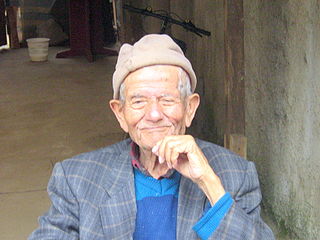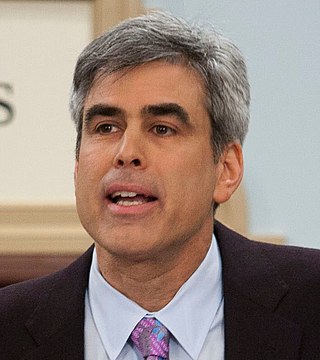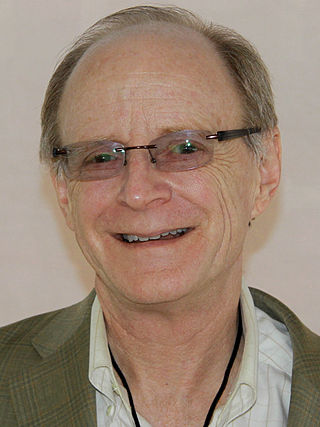Related Research Articles

Happiness is a positive and pleasant emotion, ranging from contentment to intense joy. Moments of happiness may be triggered by positive life experiences or thoughts, but sometimes it may arise from no obvious cause. The level of happiness for longer periods of time is more strongly correlated with levels of life satisfaction, subjective well-being, flourishing and eudaimonia. In common usage, the word happy can be an appraisal of those measures themselves or as a shorthand for a "source" of happiness. As with any emotion, the precise definition of happiness has been a perennial debate in philosophy.

Positive psychology is a branch of psychology that studies the conditions that contribute to the optimal functioning of people, groups, and institutions. It studies "positive subjective experience, positive individual traits, and positive institutions... it aims to improve quality of life." It is a field of study that has grown as individuals and researchers look for common ground on better well-being.

Economic materialism can be described as either a personal attitude that attaches importance to acquiring and consuming material goods or as a logistical analysis of how physical resources are shaped into consumable products.

Gratitude, thankfulness, or gratefulness is a feeling of appreciation by a recipient of another's kindness. This kindness can be gifts, help, favors, or another form of generosity to another person.

Mihaly Robert Csikszentmihalyi was a Hungarian-American psychologist. He recognized and named the psychological concept of "flow", a highly focused mental state conducive to productivity. He was the Distinguished Professor of Psychology and Management at Claremont Graduate University. He was also the head of the department of psychology at the University of Chicago and of the department of sociology and anthropology at Lake Forest College.

Jonathan David Haidt is an American social psychologist and author. He is the Thomas Cooley Professor of Ethical Leadership at the New York University Stern School of Business. His main areas of study are the psychology of morality and moral emotions.

David Steindl-Rast OSB is an Austrian-American Catholic Benedictine monk, author, and lecturer. He is committed to interfaith dialogue and has dealt with the interaction between spirituality and science.

James Whiting Pennebaker is an American social psychologist. He is a Professor Emeritus of Psychology at the University of Texas at Austin and a member of the Academy of Distinguished Teachers. His research focuses on the relationship between natural language use, health, and social behavior, most recently "how everyday language reflects basic social and personality processes".
Edward Francis Diener was an American psychologist and author. Diener was a professor of psychology at the University of Utah and the University of Virginia, and Joseph R. Smiley Distinguished Professor Emeritus at the University of Illinois, as well as a senior scientist for the Gallup Organization. He is noted for his research over the past thirty years on happiness, including work on temperament and personality influences on well-being, theories of well-being, income and well-being, cultural influences on well-being, and the measurement of well-being. As shown on Google Scholar as of April 2021, Diener's publications have been cited over 257,000 times.

The traits of extraversion and introversion are a central dimension in some human personality theories. The terms introversion and extraversion were introduced into psychology by Carl Jung, although both the popular understanding and current psychological usage vary. Extraversion tends to be manifested in outgoing, talkative, energetic behavior, whereas introversion is manifested in more reflective and reserved behavior. Jung defined introversion as an "attitude-type characterised by orientation in life through subjective psychic contents", and extraversion as "an attitude-type characterised by concentration of interest on the external object".

Sonja Lyubomirsky is a Russian-born American professor in the Department of Psychology at the University of California, Riverside and author of The How of Happiness: A Scientific Approach to Getting the Life You Want.
Kennon Marshall Sheldon is a professor of psychological sciences at the University of Missouri in Columbia, Missouri. His research is in the areas of well-being, motivation, self-determination theory, personality, and positive psychology. In 2002 he was a recipient of a Templeton Foundation "Positive Psychology" prize and in 2014 received the Ed and Carol Diener award for mid-career achievement in personality psychology. He is the author of Optimal Human Being: An Integrated Multi-level Perspective, Self-determination Theory in the Clinic: Motivating physical and mental health, and has written and edited several other academic books, as well as more than 200 academic articles and book chapters.

A gratitude journal is a diary of things for which someone is grateful. Keeping a gratitude journal is a popular practice in the field of positive psychology. It is also referred to as “counting one's blessings” or “three good things”.
Ruut Veenhoven is a Dutch sociologist and a pioneer on the scientific study of happiness, in the sense of subjective enjoyment of life. His work on the social conditions for human happiness at Erasmus University Rotterdam in the Netherlands, has contributed to a renewed interest in happiness as an aim for public policy. He has shown that happiness can be used a reliable measure to assess progress in societies which was one of the sources of inspiration for the United Nations to adopt happiness measures as a holistic approach to development. Veenhoven is the founding director of the World Database of Happiness and a founding editor of the Journal of Happiness Studies. He has been described as "the godfather of happiness studies", and "a leading authority on worldwide levels of happiness from country to country", whose work "earned him international acclaim".
Todd Barrett Kashdan is an American psychologist. He is a professor of psychology and director of the Well-Being Laboratory at George Mason University. His research explores why people suffer, with an emphasis on the transition from normal to pathological anxiety. Other research explores the nature of well-being, with an emphasis on the critical functions of curiosity, meaning and purpose in life, and psychological flexibility to human performance.
Well-being is a topic studied in psychology, especially positive psychology. Related concepts are eudaimonia, happiness, flourishing, quality of life, contentment, and meaningful life.
Moral emotions are a variety of social emotions that are involved in forming and communicating moral judgments and decisions, and in motivating behavioral responses to one's own and others' moral behavior. As defined by Jonathan Haidt, moral emotions "are linked to the interests or welfare either of a society as a whole or at least of persons other than the judge or agent". A person may not always have clear words to articulate, yet simultaneously, that same person knows it to be true deep down inside.
Cassie Mogilner Holmes is a professor of marketing and behavioral decision making at UCLA Anderson School of Management and author of Happier Hour. Best known for her research on time and happiness..
June Gruber is a licensed clinical psychologist whose research focuses on the positive affectivity and mental health disorders. She is an Associate Professor of Psychology and Neuroscience at the University of Colorado Boulder and Director of the Positive Emotion and Psychopathology Laboratory (www.gruberpeplab.com).

Robin Stern is an American psychoanalyst at Yale University, associate director for the Yale Center for Emotional Intelligence, an associate research scientist at the Yale Child Study Center, and is on the faculty of Teachers College, Columbia University.
References
- ↑ "Virtual International Authority File" . Retrieved 2013-12-31.
- ↑ "UC Davis Psychology, Robert Emmons". Psychology.ucdavis.edu. Archived from the original on 2013-09-07. Retrieved 2013-09-06.
- ↑ "Empowering Through Gratitude- Kellee Marlow & Robert Emmons". Spark Conversations Podcast. Retrieved 2020-06-01.
- ↑ "Adolescent Character Development". Archived from the original on June 12, 2013. Retrieved April 11, 2013.
- ↑ "Science of Gratitude". Gratitudepower.net. Retrieved 2013-09-06.